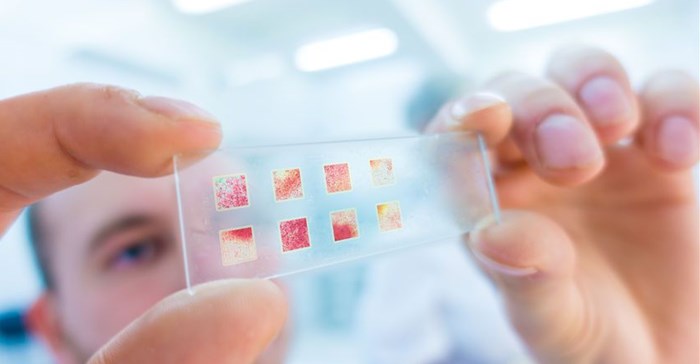A new blood test that can predict tuberculosis (TB) up to two years before its onset in people at high risk of developing the disease has a South African connection.
Stellenbosch University (SU) researchers are part of an international consortium that are working on developing the test.
“People in close contact with TB patients are at risk of also developing the disease, however it is not feasible to give preventative treatment to all of these people. Our research group developed a blood test that can predict which contacts are more likely to progress to active TB, and these individuals can then be singled out for preventative treatment,” explains Professor Gerhard Walzl, lead author of the study and head of the Immunology Research Group at SU’s Faculty of Medicine and Health Sciences.
A blood test that predicts the development of TB without putting large numbers of lower-risk people through unnecessary preventative treatment is not currently available. “Preventative treatment is several weeks long and has potential side effects. One wants to limit the number of people who have to undergo such treatment to those most at risk for developing active TB,” says Walzl.
The test measures the expression level of four genes associated with inflammatory responses. This four-gene signature, known as Risk4, was found to apply in populations from South Africa, The Gambia and Ethiopia.
“This study was the first step, and now the impact of this test on the prevention of TB will have to be tested in multicentreclinical trials,” says Walzl. “In addition, the validity of the prediction in high-risk individuals in Asia, South America and other high-priority areas needs to be assessed.”
The research was published today in the American Journal of Respiratory and Critical Care Medicine.
The international research consortium included researchers from Stellenbosch University (South Africa), the Max Planck Institute for Infection Biology (Germany), the South African TB Vaccine Initiative (SATVI) at the University of Cape Town (South Africa), the Medical Research Council Unit in The Gambia, the London School of Hygiene and Tropical Medicine (UK), Case Reserve Western University (Netherlands), the Armauer Hansen Research Institute (Ethiopia), Makerere University (Uganda), the Ethiopian National Research Institute (Ethiopia), the Karonga Prevention Study (Malawi), Statens Serum Institute (Denmark), AERAS Global TB Vaccine Foundation (United States), Stanford University (United States) and Sanquin Research (Netherlands).






























